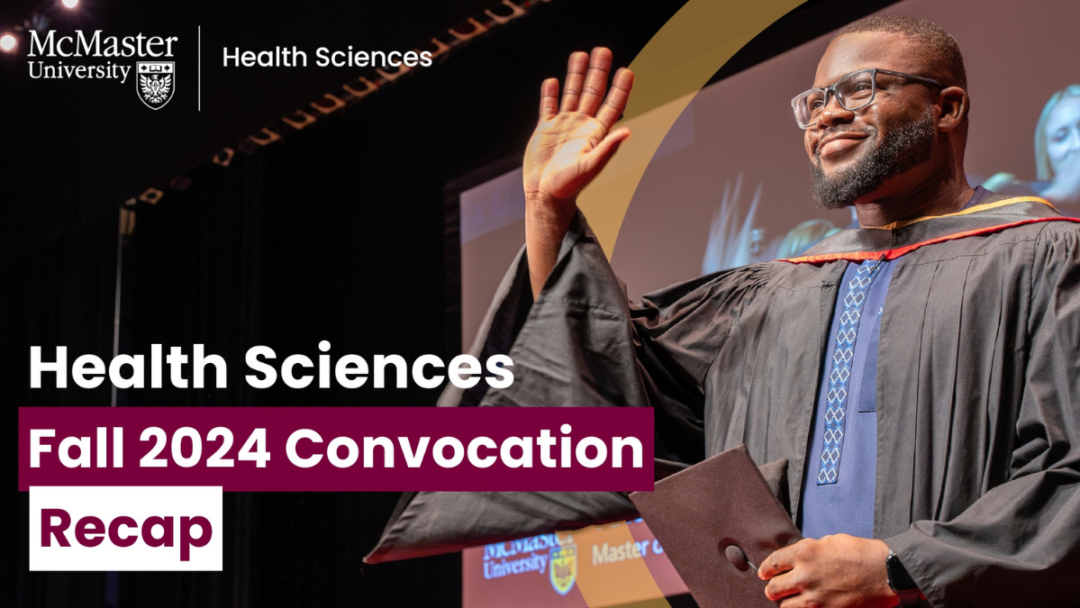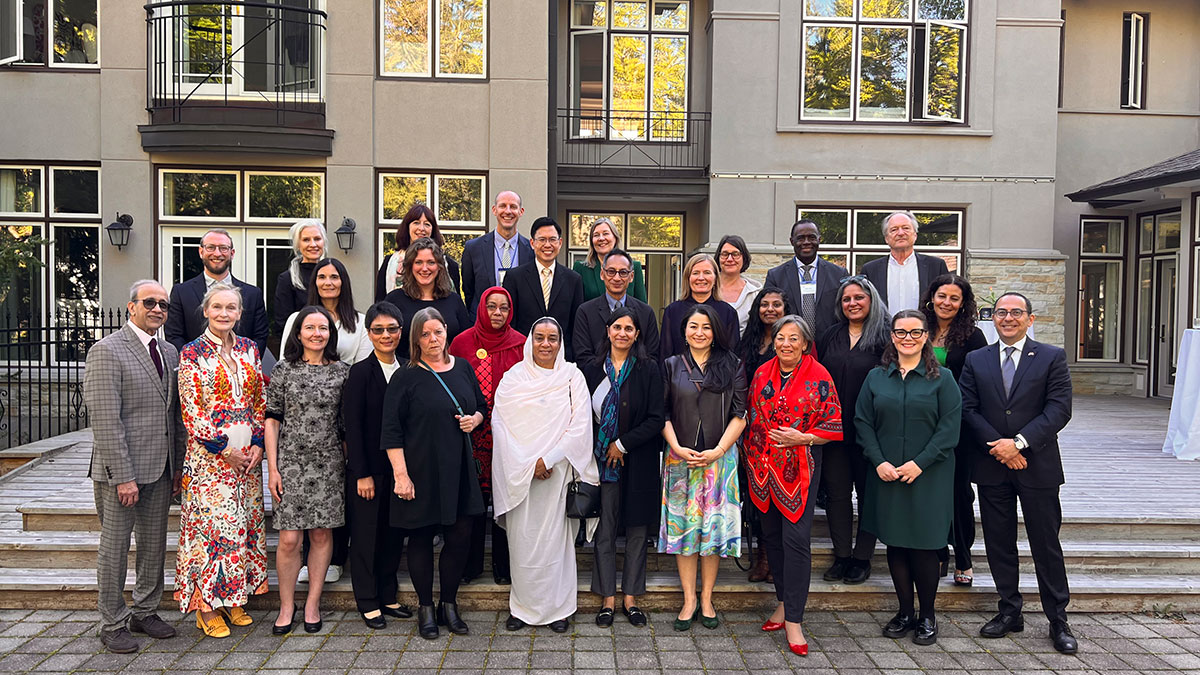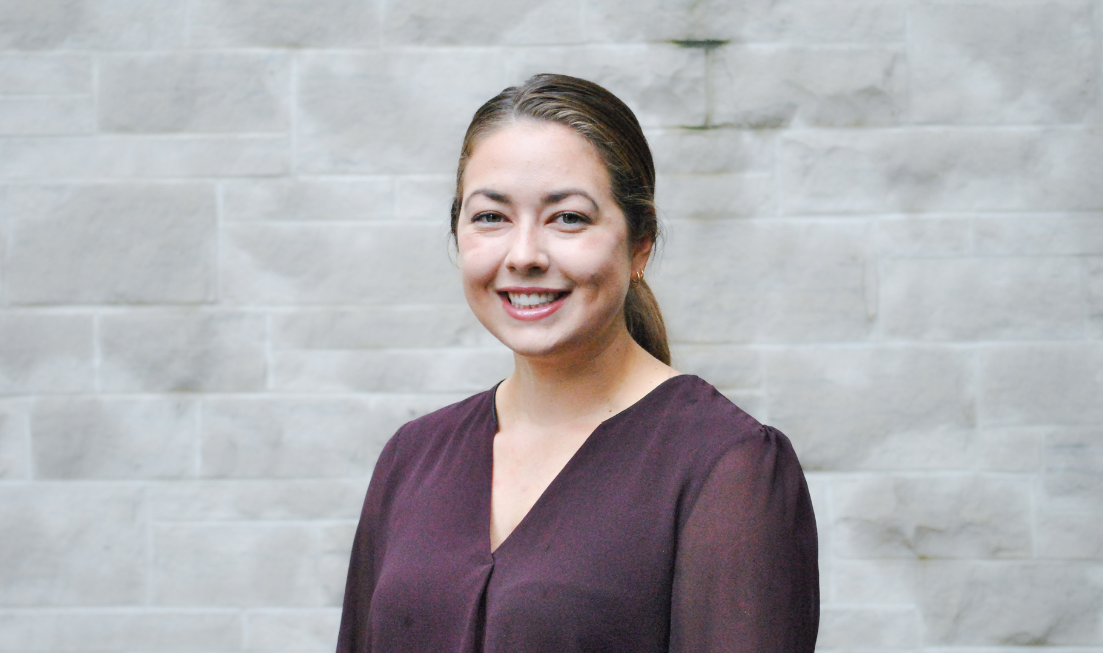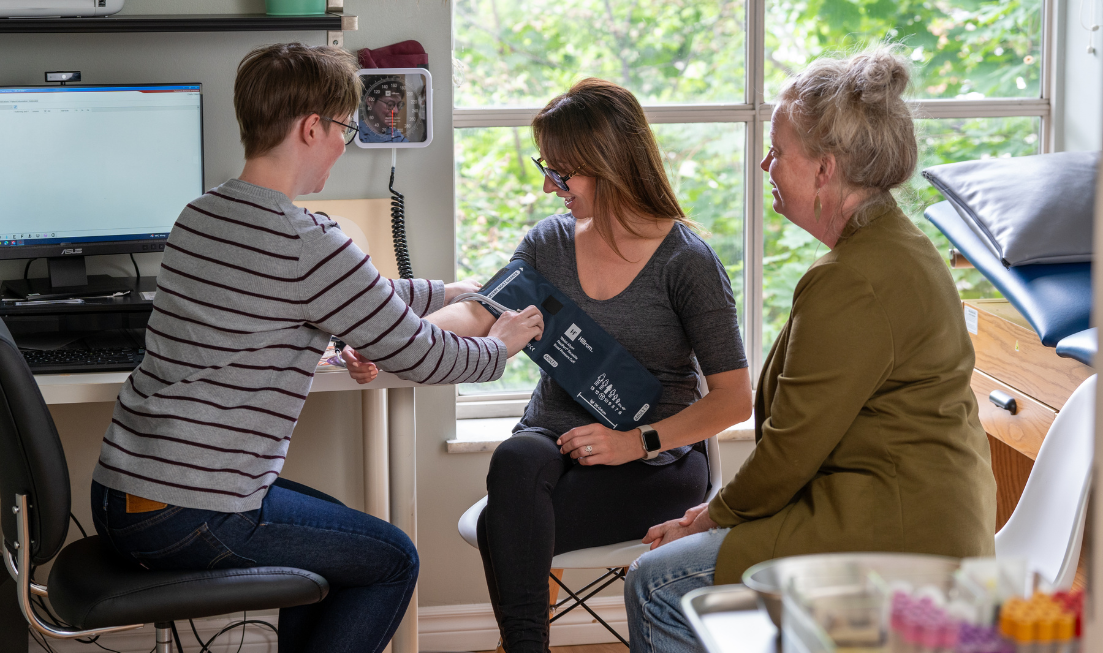Health Sciences graduates celebrate achievements at Fall 2024 convocation

More than 600 graduates from the Faculty of Health Sciences crossed the stage last week during the Fall 2024 Convocation ceremony, signaling the completion of one journey and the beginning of another.
Among those celebrating the triumphs and successes of this past academic year were Kian Yousefi Kousha, a graduate of the neuroscience program, who represented the Faculty of Health Sciences as valedictorian and John Ioannidis, who received an honorary degree from the university.
Valedictorian
Kian Yousefi Kousha graduated Nov. 21 with a Master of Science in Neuroscience from the Department of Psychiatry and Behavioural Neurosciences in the Faculty of Health Sciences.
His research focuses on a clinical trial exploring the effects of treating postpartum depression on infant brain development, supported by a prestigious Canadian Institutes.
As an undergrad, Kousha co-led the McMaster Synthetic Biology Research Team, earning a silver medal in 2022 at the world’s largest synthetic biology competition. He received an Albert Lager Prize in 2022 in recognition of his initiative and contributions as a student.
Kousha hosts and produces SciSection on CFMU 93.3FM, simplifying science for lay audiences and interviewing experts from across the world. He co-led the McMaster SickKids Club in writing a children’s book, with proceeds donated to SickKids hospital. He’s also a long-term celebrated volunteer with the Canadian Red Cross.
Learn more about Kousha and his advice for future students, check out his interview with the university.
Before convocation, Kousha spoke with the university about his time at McMaster and his words of wisdom for students:
What brought you to McMaster?
I chose McMaster for its reputation as a leading research university and its vibrant and welcoming community; I wanted to be part of that.
What’s one of your favourite memories from your time here?
One of my best memories was our McMaster Synthetic Biology team winning silver at the iGEM competition after nearly two years of hard work, much of it during lockdowns. Beyond the medal, it was the validation of our resilience and shared vision that made it truly meaningful.
Tell us about a mentor or someone who made a difference for you in your time at Mac.
My graduate research supervisor, Dr. Ryan Van Lieshout, is the true definition of a mentor and teacher. He has taught me to lead by example and to find joy in my work. Also, I would not be here without Dr. Laurel Trainor, Dr. Jesse Pazdera, and Dr. Kevin Jones, who guided me as I stepped into the world of research.
Now that you’re graduating, any words of wisdom for students?
Just as you’re hoping for someone to believe in you, one day you’ll be in a position to do the same for others.
Don’t hesitate to take a chance on someone who just needs a little support.
What’s next for you, or what do you see yourself doing in the future?
I’d love to continue working in research, especially where it intersects with clinical work.
Six years in neuroscience have made one thing clear: I love the brain!
Honorary degree recipient
At this year’s fall convocation ceremony, the university honoured the achievements of John Ioannidis, a pioneer and international leader in evidence-based medicine and meta-science.
Stanford professor of medicine John Ioannidis is a tireless advocate for evidence-based science and the world’s leading authority on medical research credibility.
Ioannidis is one of the most cited researchers in the world and has had an enduring and profound influence on critical thinking and health care practice. He has authored 1,200 scholarly papers, including one in 2005 titled “Why most published research findings are false,” which is one of the most accessed publications in the world, and which helped launch the field of meta-science, revealing how often researchers can develop the wrong conclusions.
A compelling advocate for sound research principles, Ioannidis has delivered more than 700 talks and lectures worldwide. In the early days of the COVID-19 pandemic, he was a strong voice for evidence-based science in the media.
A professor of medicine and epidemiology and population health at Stanford University, he is the former director of the Stanford Prevention Research Center and is co-director of the Meta-Research Innovation Center at Stanford (METRICS).
Ioannidis has previously served as chair of the department of Hygiene and Epidemiology at the University of Ioannina Medical School, and director of the Center for Genetic Epidemiology and Modeling at Tufts University.
He has served on the executive board of the Human Genome Epidemiology Network and as senior advisor on knowledge integration for the National Cancer Institute. Ioannidis has been president of the Association of American Physicians, as well as of the Society for Research Synthesis Methodology. He was elected to the National Academy of Medicine, the Association of American Physicians and several other professional academies while also receiving the inaugural Harwood Prize for Intellectual Courage from the American Institute for Economic Research.
His list of honours includes the Albert Stuyvenberg Medal from the European Society of Clinical Investigation, the European Award for Excellence in Clinical Science and the Chanchlani Award for Epidemiology.
EducationRelated News
News Listing

New Mary Heersink School of Global Health and Social Medicine at McMaster University
Education, Feature, Global Health
January 28, 2025

Brighter World ➚
Mac grad Rebecca Correia is creating a better future for Canada’s seniors
Dept. HEI, Education, Graduate
January 24, 2025

Daily News ➚
McMaster ranked one of the world’s best universities for medical and health studies
Education
January 24, 2025
